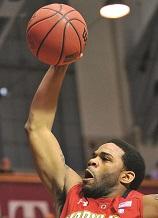
Newspaper stories about major sporting events used to focus solely on the teams and players. After a bowl game, journalists would write about great plays, surprising performances and the secrets of a team’s victory. “March Madness” would roll around, and articles and columns would discuss brackets and Cinderellas breaking into the Sweet 16.
But increasingly, these events are business stories, with attention given not only to athletic performance on the field but also on economic performance in the community. Sporting events are big business, and as that business has grown, so has competition among communities vying to serve as event hosts.

We all know the direct economic impact of “heads in beds.” As communities and CVBs work to attract sports tourism events, the goal is to generate room nights and tourist spending. How communities track and measure the impact of these room nights differs, however. Many communities measure by room—applying a multiplier per room night booked that takes into account expected spending on items such as meals and attractions in addition to lodging. Others track spending by attendee, to account for the fact that most sports groups book double, triple and even quadruple occupancy in guest rooms.
However it is measured, the impact can be substantial. In the case of Daytona Beach, the 2012-2013 Fiscal Year saw nearly $11 million in economic impact from sports tourism—not counting the marquee special events such as Speedweeks and Bike Week—with more than $7 million already on the books for the current Fiscal Year. That’s a significant figure and helps to explain why the CVB places major emphasis on the attraction of new events.
But to capitalize on sports tourism, CVBs and sports commissions like to work with the event owners and rights holders. There are a number of strategies to be considered when looking to drive the greatest possible economic impact from sports tourism. And while destinations do derive the biggest benefit of economic impact, we understand and appreciate the essential role that event owners and rights holders play in helping grow the bottom line. Want to be a major player as an event owner? It’s all rooted in having good, strong working relationships.
Working with a Host City
Becoming THE host city for an event can have a tremendous impact on both the event and on the host city. Success for both sides depends on an ongoing working relationship. To ensure that a community will ask your organization to return each year, find ways to build goodwill in the community that make hosting your event for the long term a win-win for everyone involved. Consider investing in community awareness programs associated with your event—whether it is funding sports lessons for local underprivileged children, giving a free skill clinic for an area sports club or donating to a local charity that aligns with your mission. Community involvement at any level helps bring awareness to the event and solidifies your position as THE event for years to come.
The foundation of a good relationship between event owner or rights holder, and CVB/sports commission is always communication. It is essential to work collectively as a unit and not hold any event logistics, facts, information or needs back while negotiating. The cities need to know what is expected from them in order to have a successful event. We urge both sides, therefore, to keep the lines of communication open. The partnership that you have will make the difference in a successful event.
Engage the Community
There are many things that boost economic impact, and not all of them relate to hotel rooms or restaurant spending. Word-of-mouth is a huge factor in promoting events, and in encouraging athlete and spectator attendance. We always encourage CVB staffs and sports commissions to demonstrate how supportive and thankful the entire community, not just the CVB sales staff, is for their business.
Make sure the local audience is aware of the events you’re planning and give them a reason to participate. While marketing events within another community may seem counter-intuitive, doing so helps to attract appreciative crowds … and that applause is something athletes and their families always appreciate. (We’ve all seen people cheering on marathon participants or bicycle racers as they make their way through the streets, for example). A live event can be as fun for spectators and community members as it is for the athletes when everyone is supportive and happy.
As CVBs and sports commissions, we understand that the world in which athletic association decision-makers operates is small and close-knit, and we know that people talk about their events in various cities. When attendees have a great experience, one that includes support and appreciation from the host community, it opens doors to new opportunities.
Volunteer Support
Support for your event can also come from volunteers, and the success of an event can often depend on these pivotal roles that are filled by members of the community. Event organizers that work with destinations to search out volunteers should clearly define their responsibilities so that they can identify those that have a stake in the success of an event—such as university or college programs that may have courses in related fields and may require volunteer hours for course completion. Allowing volunteers to participate in the event outside of their shift also builds the audience and boosts the crowds.
When working with our CVB, event directors are put in contact with our event services coordinator that will initiate the call to action for volunteers. Many of our volunteers are either in a hospitality college program or are college/high school athletes. Each volunteer/ambassador fills out a form that details what they are interested in, how active they are in the sports world and what duties they are able to do. We also have an airport ambassador program that allows a warm welcome as they arrive to our airport. Ask your destination about ideas like these and others – they can heighten awareness of your event and also boost your bottom line.

What are you as an event owner looking for in a destination? It is important to understand what you need – as well as what you don’t. For example, not every community can host a college football bowl game; after all, it requires not just modern football facilities with significant seating capacity, but tens of thousands of available hotel rooms, access to a volunteer army and a business community willing and able to raise thousands in sponsorship dollars. It’s impressive, but do you really need all that?
Maybe your football event, for example, isn’t a college bowl game, but it can still have a nice effect on the right city at the right time. For example, while Daytona Beach doesn’t have the infrastructure for a major bowl game, the community does have the Larry Kelly Municipal Stadium that seats 10,000, perfect for the National Association of Intercollegiate Athletics Football National Championship. We’ve learned to work with what we have and to seek out partners who are looking for that.
Determine Your Best Fit
Knowing whether an event is a good fit for a destination always starts with asking the right questions. What has the city hosted in the past? What were the attendance figures? Is there any information on economic impact? Can you talk to the event owners and get their impressions? What can the CVB or sports commission tell you?
CVBs and sports commissions will want to host events that are a proven success; however, we certainly look forward to hosting events that have not been in our destination before. When they’re successful and the athletes and their families are happy, we want to bring them back year after year. Having an interesting variety of sports visiting the area is good for engaging the community as well.
It’s essential for an event owner or rights holder to do the research and learn about each potential destination: its venues, their capacity, its infrastructure, weather, accessibility and more. And sometimes the destination just isn’t the right fit. Maybe, for example, there is a large bid fee involved. Maybe the time of year is wrong, and room availability is limited. Maybe there is another event in town and your event would not be able to command the services it requires.
If you are like Daytona Beach – a community with a number of marquee events throughout the year – the Daytona 500, Biketoberfest, Rolex 24 At Daytona and Turkey Run, to name a few – bringing a large-scale sports tourism event to town in the time period around an existing marquee event would be nearly impossible. Hotels have very little vacancies, staff members are fully committed and transportation infrastructure is heavily burdened.
But it’s not just marquee events that can post conflicts. Area hotels might have meetings and events of their own that limit available room inventory. It’s important to build strong ties throughout the tourism community to understand that there are going to be times that are difficult for specific areas.
The best rule for us as destinations is to go after events if we believe they are the perfect fit for our needs and if we believe we are the perfect fit for theirs. An easy determining factor for event owners can be whether the destination has already hosted an event in your sport or one of a similar size—they likely have already created a logistics model and can adjust to your needs, potentially saving money and time for newer relationships.
Remember the Importance of Coop-etition
Communities and CVBs may compete for a finite selection of sports tourism opportunities, but we also look for opportunities to cooperate and learn from each other.
This is a concept well-known to those in the economic development industry. When one community succeeds, it benefits all. If we compete for a basketball tournament that goes to another community, we hope that community succeeds. Why? Because success makes it more likely that the sports group will continue to grow, making for a larger, more impactful tournament in the future. Tournaments that grow may need more than one location. There are also times when we can’t accommodate an event, but we’re able to refer another destination or property that might be better suited for it. And as always, we hope it has success there.
Together, We Fuel Economic Power
You don’t have to be an economist to understand the impact of sporting events. Fans and attendees spend money. It is that simple. And yet, as more and more communities are finding, the potential to expand the impact of their spending is real and for many goes well beyond the event itself, and often results in athletes and their friends and families becoming devoted fans of the destination, as well.
Just as destination marketers must communicate with sporting event organizers, it is critical that they convince their local leaders and community stakeholders to become ambassadors and carry the message of the sometimes unseen value of this growing sector of travel and tourism.

